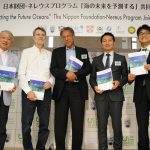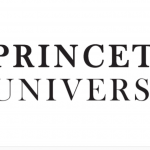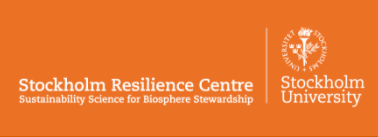
PhD in Vulnerability and adaptive capacity in Indo-Pacific mangrove forests
The University of Cambridge and the UN Environment World Conservation Monitoring Centre (UNEP-WCMC) have secured funding to provide full support to a PhD student for 3 years (subject to satisfactory progress) from 1 October 2018 under the Nereus Program, a collaboration between the Nippon Foundation and the University of British Columbia which has engaged in innovative, interdisciplinary ocean research since its inception in 2011. The Program is a global partnership of leading marine and environmental science institutes (7 ‘partner institutes’ + 10 ‘expansion partners’ since 2016) with the aim of undertaking research that advances our comprehensive understandings of the global ocean systems across the natural and social sciences, from oceanography and marine ecology to fisheries economics and impacts on coastal communities. This will be the third full-time PhD in Cambridge under this programme; the successful applicant will join the Biogeography and Biogeomorphology Thematic Research Group, comprising 10 senior scientists, post-docs and PhD students. The Fellowship will be based jointly in the Cambridge Coastal Research Unit, Department of Geography at the University and at UNEP-WCMC (both in the David Attenborough Building in central Cambridge and at its centre north of the city centre). There will also be opportunities to interact with the wider Nereus research community and other Cambridge-based marine scientists.
Topic description
Intertidal zone mangrove forests on tropical and subtropical coasts provide a wide range of ecosystem services, including the support of fisheries, coastal protection and carbon sequestration, estimated to be worth at least US$194,000 per hectare per year. Accelerated sea level rise has been seen as a particular threat to the continuation of these services. Crucially, however, mangrove forests have the capacity to keep pace with sea-level rise, and avoid in-place drowning and conversion to mudflat and open water, through the trapping of suspended sediments and the incorporation of in situ plant litter and other organic matter. This vertical accretion allows wetland surfaces to maintain surface levels conducive to plant growth and thus allow mangrove systems to track sea level rise through time. A recent regional study of surface elevation gains in Indo-Pacific / Australasian mangrove forests showed, however, that the majority of sites studied are suffering from ‘elevation gain deficit’, being supplied with insufficient sediment to meet current rates of sea level rise. Furthermore, modelling of likely future system behaviour under accelerated sea level rise allows the assessment of probable time to submergence with lack of sediment availability. According to the model, mangrove forests are likely to survive at sites with high tidal range, even with high rates of sea level rise and low levels of sediment availability. However, at sites with low tidal range, forests may be lost by 2080 under even moderate rates of sea level rise (0.8 m by 2100). Mangrove forests are an important component in the connectivity of the mangrove-seagrass-coral reef ‘seascape’ and research has shown linkages between changing mangrove extent and fish catch. It is important, therefore, that these geomorphological / sedimentological observations and scenario modelling exercises are now assessed in terms of their implications for the mangrove fisheries of the Indo-Pacific / Australasian region.
Within this context from the biophysical sciences, it is important to establish the extent to which local communities are experiencing climate change, are knowledgeable about it and are able or unable to change their behaviour to actively manage risks. How is climate change being experienced (changing seasons and rainfall patterns? increased storminess? increased flooding? erosion of mangrove shorelines?) Are fishing communities coping (passively accepting the consequences of a change or event and thus not changing behaviour to alter outcomes); reacting (responding but in an unplanned way); or adapting (proactive and anticipatory planning of individual or collective actions, based on knowledge or experience of past or anticipated future changes, resulting in no regrets or sustainable socio-ecological outcomes) to climate change and sea level rise? What is the adaptive capacity of individuals, households and communities to the threats posed to mangrove fisheries by global environmental change in the Indo-Pacific region?
Much previous research on adaptive capacity has tended to focus at a single scale or on singular stressors whereas in reality communities experience multiple stressors and are influenced by dynamics operating at multiple scales (international, national, community, and household). An important SE Asian context is that of high levels of occupancy of the low-lying coastal zone and its rapidly growing urbanization. One ‘safety valve’ for mangrove forest persistence in the face of accelerated sea level rise is the ability to migrate upslope and inland under sea level forcing. However, barriers to landward expansion of mangrove forests occur throughout the Indo-Pacific region, particularly in sites that have intensive aquaculture and low-lying agricultural land. Explosive urban growth directly threatens mangrove forests through clearance and infill and indirectly through pollution and deteriorating water quality. However, at the same time, in an adaptive capacity sense, urbanization may offer ‘occupational multiplicity’ and ‘livelihood diversity’, such as nature-based tourism emanating from urban centres and incomes based on mixed urban employment and continued fishing.
In consultation with regional partners, we envisage the selection of 2-3 study sites in the western Indo-Pacific / Australasian region to evaluate the scenario modelling of mangrove forest futures in terms of their implications for mangrove fisheries. One site is likely to be in southern Thailand. A mixed methods approach, employing surveys and interviews, will be used to examine the multiple dimensions of adaptive capacity in these fishing communities. The project will recommend different interventions for addressing the adaptive capacity gaps that the communities may possess in relation to the various environmental, economic, and climatic changes occurring now and into the near-future.
Eligibility
Candidates must have graduated at a University before 30 September 2018 and be eligible to pay University fees at the ‘home’ (UK/EU) rate. Funding will be for 3 years and is for full-time study only. Consideration will normally be restricted to those who have obtained, or who have a strong prospect of obtaining, a first-class Honours degree (or its equivalent). Evidence of subsequent intellectual development – such as a Masters degree in a relevant field – will be taken into account. The successful applicant will be expected to have previous experience of shallow marine / coastal environments and/or aquatic ecosystems; mathematical modelling and/or statistical analysis skills; and an interest in applied, policy relevant research. It is expected that the project will build upon the skill set of the successful applicant and, therefore, there will be some flexibility, in agreement with supervisors, in determining the exact focus of the project. This will be a highly collaborative project and evidence of collaborative and interpersonal skills will be looked for in the successful applicant.
Application procedure
The application procedure is in two stages.
Suitably qualified candidates wishing to apply should submit i) a brief (500 words maximum) covering letter stating why they are suitable for the project; ii) a short CV (2 pages A4); and iii) the names and affiliations of two academic referees who can be contacted by email. Application documents should be sent to Katrina Purser, Graduate Administrator, Department of Geography, Downing Place, Cambridge CB2 3EN, UK in hard copy or via email to [email protected], no later than 12:00 noon, Wednesday 31 January 2018. Late applications will not be accepted.
Interviews are expected to take place in Cambridge sometime during the period 12 – 23 February 2018. Following selection, the successful applicant will be required to submit a complete formal application to study towards a PhD in the Department of Geography, using the University’s online graduate application system.
Apply no later than 30th March 2018. The Department of Geography supervisors will be Professor Tom Spencer ([email protected]) and Dr Mike Bithell ([email protected]) and the WCMC supervisor Dr Chris McOwen ([email protected]); all three supervisors will be happy to answer any enquiries.
View full details on Cambridge’s Department of Geography website.







